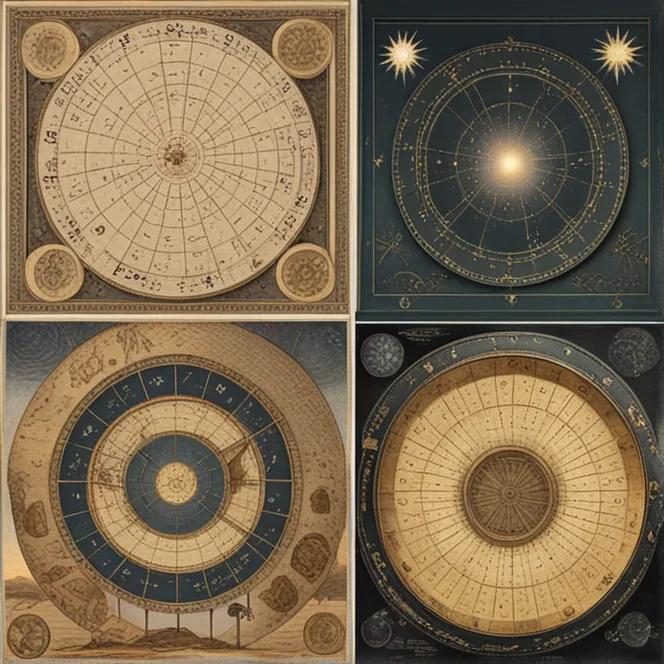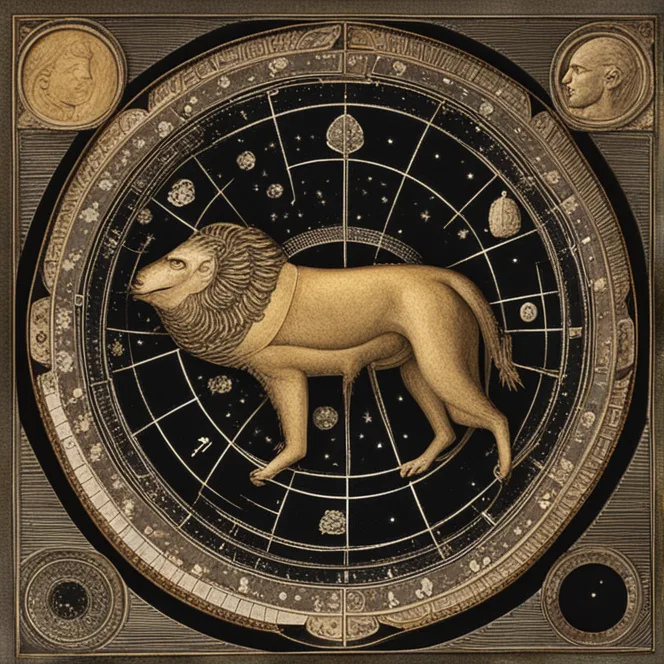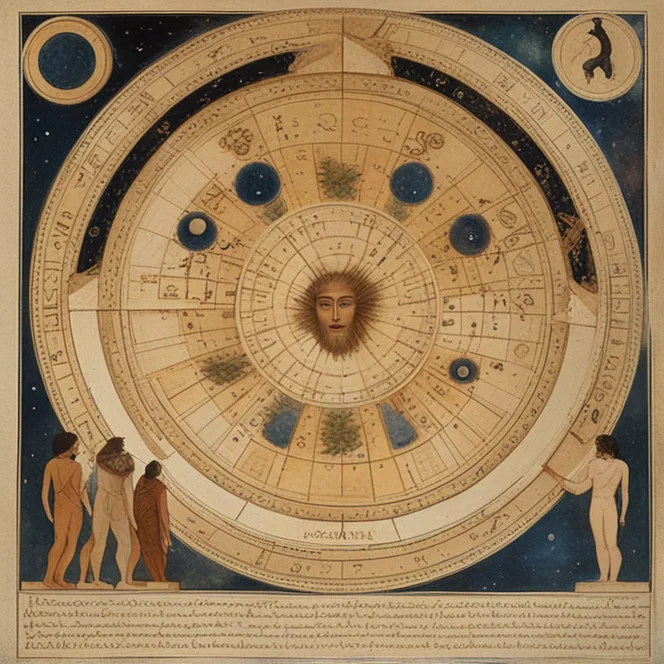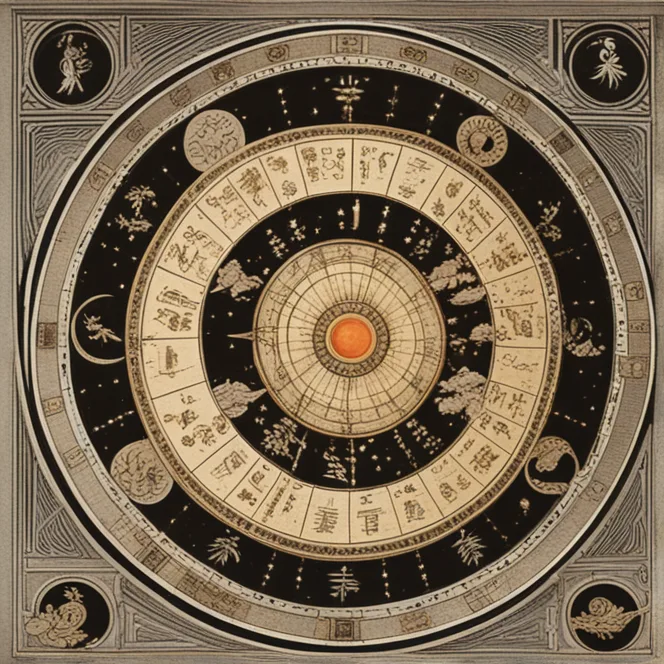
Unveiling Ancient Knowledge Of Astrology
Discover the roots of astrology and its ancient founders in this insightful exploration into one of mankind's oldest forms of knowledge.
article by Priya Deshmukh
The Dawn of Astrology
Astrology, a practice that surveys the stars for human insight, stands as one of humanity's most enduring studies. Its foundational belief that celestial objects hold significance over human affairs dates back thousands of years. The exact origin of astrology proves difficult to pinpoint due to its presence in various ancient cultures, each adapting and evolving it in their own way. While historical consensus is elusive, evidence suggests that astrology has an extensive interdisciplinary reach, intertwining with various historical narratives and geographical regions. Ancient civilizations like the Babylonians, Egyptians, Greeks, and Chinese all played pivotal roles in astrology's development, making it a truly global phenomenon. Through deciphering ancient texts and artifacts, researchers conclude that astrology's practice was widespread and integral to the ancient world's way of life.

Babylonian Astrology
Often regarded as the cradle of astrology, ancient Babylon stands out in astrological history. The Babylonians, thriving in Mesopotamia around the second millennium BCE, were meticulous sky-watchers. They developed a system wherein they believed that celestial events had direct parallels to earthly happenings. Their astrological charts and observations laid the groundwork for horoscopic astrology, which later cultures would refine and adapt. The Enuma Anu Enlil, a significant astrological text comprising 70 tablets, encapsulates their deep understanding of celestial patterns. The Babylonians' sophisticated mathematical approach enabled them to predict lunar eclipses and other astronomical phenomena with remarkable accuracy, cementing their legacy as astrology's forebears.

Egyptian & Greek Influences
The ancient Egyptians also contributed significantly to astrology's lineage. They incorporated astrological significance into their architecture, most famously in the alignment of the Pyramids of Giza with Orion's belt. Their calendar systems were also steeped in celestial movements. As time progressed, Hellenistic Egypt, particularly under the Ptolemaic dynasty, became astrology's melting pot. It is here in the late Hellenistic period that Greek influence, with its rich mythological tapestry, intersected with Egyptian astronomical knowledge. This blend gave rise to what some consider "classical astrology," an organized system that introduced the zodiac, horoscopes, and the concept of the "Ascendant" or "rising sign." Iconic figures like Ptolemy further systematized astrology by penning the 'Tetrabiblos,' a work foundational to western astrological tradition.

Chinese & Indian Legacies
Chinese and Indian civilizations also heralded significant astrological traditions. Chinese astrology, deeply rooted in philosophy and metaphysics, presents a unique zodiac system that combines lunar movements with principles of yin and yang, and the theory of the five elements. Meanwhile, Vedic, or Indian astrology, known as "Jyotisha," emerges around the mid-first millennium BCE. Vedic astrology provides an intricate and spiritual take on the celestial dance, emphasizing karmic cycles and reincarnation. It offers a distinct model from Western astrology, including a sidereal zodiac that accounts for the precession of equinoxes—something Western astrology largely overlooks. As with other traditions, both Chinese and Indian astrological practices remain influential today, symbolizing the rich diversity within astrological heritage.

Modern Astrology's Renaissance
Despite astrology's ebb and flow in popularity and credibility, the modern era has witnessed a renaissance of interest in astrological studies. Advancements in technology facilitate a democratization of this ancient wisdom, allowing more individuals to explore and understand astrology. Astrology's applications have expanded beyond personal insight, touching upon psychological, medical, and financial fields, although it remains a subject of skepticism among scientific communities. Nonetheless, its resilience underscores the human fascination with the stars and the longing to find meaning in the cosmos. The millennia-long tapestry of astrology's history is a testament to our ancestors' quest for understanding, a tradition that continues to this day.
Published: 12/5/2023
Modified: 12/5/2023
More predictions
Come back here soon to learn more about yourself and your future


Cosmic Synergy: Exploring the Bond Between Astrology and Palmistry
Delve into the ancient arts of palmistry and astrology to unveil the secrets they hold about personality, destiny, and compatibility.


Deciphering the Celestial Code: Your Guide to Astrology
Explore the basic principles of astrology and how it can shed light on your personality, life events, and relationships.


Celestial and Palmar Insights: An Integrated Approach to Palmistry and Astrology
Explore the ancient arts of palmistry and astrology to gain insight into your personality, destiny, and life path.